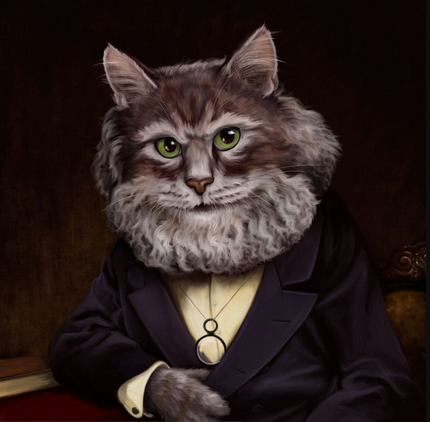About a week ago Gerald Horne mentioned on his youtube channel a book called Teaching White Supremacy. I thought it sounded interesting but that it would be a pretty standard and possibly boring “America Bad” sort of book, but I found myself really enjoying it and learning a lot, and it’s just like, are there any white people in 19th century America aside from John Brown who weren’t completely fucking insane? Walt Whitman, a poet I really enjoyed when I was a teenager, who was on the right side of the Civil War—fucking racist piece of shit. Emerson, a philosopher who never interested me in the slightest, but who was still mentioned in our high school history classes—fucking profound disgusting racist, freely saying and writing the most appalling shit you can imagine. And of course their wikipedia articles are like “it was normal at the time.” It’s still normal now, it doesn’t mean it’s okay!
I haven’t looked at Whitman in twenty years but I will still say that maybe he’s a good poet, but fucking Emerson? Did that guy write a single word that is genuinely beautiful, interesting, or helpful? My guess is that he’s just part of the canon because America needs someone to prove to the world that we’re not all just a bunch of mindless barbarians. But Emerson is just basically a nineteenth century hippy. And Thoreau was like “wouldn’t it be cool if I lived alone in a house in the woods.” Wow, so deep!
Maybe Herman Melville is another exception, like a literary John Brown. (Someone prove me wrong.) Moby Dick truly is a classic and Typee is honestly fucking awesome too. It’s no surprise he died in obscurity. Poe is also brilliant but he was a fucking piece of shit as a person (with a very tragic life of course). I don’t know anything about his political views but I imagine that they weren’t very good.
I’m a white cissie, so this country was built for me, and I’m guessing its shittiness doesn’t come as much of a surprise for people reading this who aren’t white cissies, but still, even if you spend just a few minutes a day reading almost anything about the USA, you are bound to get depressed. For a book I’m working on I was just researching age of consent laws and child marriage in the USA and holy fucking shit, the line “minors are not accepted in shelters” just left me unable to continue. I had to stop after researching for five minutes. So utterly fucking profoundly bleak.
I find it ironic that I’ve spent so much time and energy looking at US history as an adult when I thought it was the most boring subject at every level of schooling I received. Turns out it was only boring because they had to strip it to its bones to not radicalize every child and adult along the way.
One of the best US propaganda tools targeting USians is convincing them their own country’s history is mind-numbingly dull and not worth learning.
it was the most boring subject at every level of schooling I received. Turns out it was only boring because they had to strip it to its bones to not radicalize every child and adult along the way.
It also doesn’t help that it’s like the same handful events and people and timeline every time, without ever really going into more detail than just the big pillars of the American civic cult and the sort of “sure [thing] was bad then [gives a highly whitewashed account of it], but that was solved by [Great Man action that was too little, too late, and also didn’t solve it]!” that form a core part of liberal apologia for the US (like “sure we did
the most heinous thing you’ve ever heard ofa little oopsie whoopsy back then when everyone was doing it, but we’re probably not doing it anymore and anyone suggesting we are still doing it just doesn’t get how divinely righteous we are and how we can do no wrong and also they’re probably a foreign agitator and/or you made them up!” shit). Every class wanted to cover the same few bullet points of the 18th and 19th centuries and then would maybe dabble in a few things from the early 20th century, and then they’d run out of time and the next class would do the same exact thing just as poorly.I guess the American History class I had in highschool was a bit more detailed, but the details were incoherent and often objectively wrong or just outright lies and most of it was minutia of like 19th century racist economic/foreign policy as it related to the planter class’s desires instead of anything more meaningful or important like how that pertained to actual people or the violence and monstrous cruelty involved in it. Nope, gotta learn why rich landowners were angry and what they wanted, and just gloss over or ignore what effects this had or literally anything real or material.
Mark Twain is the only American writer of that period that I like as a person. His politics were really radical and I still quote him as often as Engels when describing social murder. It isn’t until like Sinclair and Steinbeck that I enjoy the country’s writing again.
I read Zinn’s “People’s history…”, a book written by socialdemocrat, and i had “Death to Amerikkka” moment every two pages or so.
No joke, if you have any liberals asking “why?”. Let them borrow a copy if you have it. It blew my mind and even named my user after Zinn.
It’s a long ass book but it explains a lot right up to the 80s.
I have a Polish edition for which some fucking local succdem rat wrote 100% anticommunist preface.
Also the same illiterate succdem publishing house printed out 18th Brumaire by Marx not realising it is colossal dunk on succdems lol.
Sad part it is that those two books together are like 1/3rd of all really left book printed in Poland in last 36 years, and that every other publishing house is way further right than those succdems.
People’s history made me go from a “Fellow Traveler” demsock to a “America is the evilest empire on Earth” commie.
The audio book for “A People’s History of the United States: Highlights from the Twentieth Century” is read by Matt Damon and is pretty good. (At least from what I remember, and for being a “non-marxist” text.) Of course its America-centric, but it really does some good work to give us Yanks an idea of the misery at home and abroad we’ve spread. Zinn ain’t perfect, but historians really need to copy his style more often. (IE, semi-informal speech, backed up by research, focused on actual history instead of JUST the fuckin’ wars and generals.)
Colonists steal native land and rename it Massachusetts. Centuries of exploitation, slavery, and war go by to establish white supremacist authority in the region. Henry David Thoreau is born. He goes to live in a shack his friend helped him build and his sister and mom helped him finance. The property is owned and controlled privately and administered by an evil slave-owning empire. His mom visits twice per week to give him pies and clean his socks. He regularly goes into town to buy food grown by exploited farm labor and probably slaves too.
Thoreau: “Ah, untapped, unspoiled nature. Living off the land and writing fancy boy essays. I’m truly the master of my own destiny.”
Unfortunately, no one is perfect, not even Brown. But, this guy also sounds pretty good once he has his to come to Jesus moment.
https://en.m.wikipedia.org/wiki/Benjamin_Lay
Gotta remember that our history suppresses a lot of the stories of the good folks to help keep more of them from developing. Brown had his white supporters,
there were the unnamed folks involved with Bacon’s rebellion, Bloody Kansas, and other uprisings. They were out there, even if they were few and far between.Wasnt Bacons rebellion about not genociding native americans fast enough? Or is that a different one?
You’d be correct. The first chapter of Settlers talks about it in details.
The whole point of Bacon’s Rebellion was that white settlers were promised to work for capital as long as they got to profit from it, during a recession, they threw a hissy-fit and raided an indigenous tribe against the governors orders in order to steal furs that they were stockpiling.
Thats where I remember reading it but its been a while and I never got to finish the book unfortunately.
It’s a really good book but it is very information heavy. Find myself needing to take a break after reading all the horrible shit in there
For real, such an important read, but very difficult purely due to how shitty the history of the US actually is.
Iirc, Bacon’s motives were questionable, but the folks he mobilized were basically a prole uprising.Out of the debris of this chaotic dispute we can pick out the central facts. First, that there was no democratic political program or movement whatsoever. Bacon’s Rebellion was a popular movement, representing a clear majority of the settlers, to resolve serious economic and social problems by stepping up the exploitaton of oppressed peoples. Far from being “democratic”, it was more nearly fascistic. Bacon was the diseased mind of the most reactionary faction of the planters, and in his ambitious schemes the fact that a few more freemen or ex-slaves had paper voting rights meant little. Far from fighting to abolish slavery, the Rebellion actually hoped to add to the number of slaves by Indian conquest.
And, finally, there was no “Black and White unity” at all. Needing fighting bodies, Bacon at the very end offered a deal to his opponents’ slaves. He paid in the only coin that was meaningful — a promise of freedom for them if he won. Those Afrikans who signed up in his army didn’t love him, trust him, view him as their leader, or anything of the kind. They were tactically exploiting a contradiction in the oppressor ranks, maneuvering for their freedom. It is interesting to note that those Indians who did give themselves up to unity with the oppressors, becoming the settlers’ lackeys and allies, were not protected by it, but were destroyed.
Thats from Chapter 2 of Settlers.
It’s been a while since properly reading it but I think I remember it was fascist vs liberal infighting and at no point about proletarian solidarity.
Well shit.

adding @JoeByeThen@hexbear.net to the “didn’t read Settlers” list

It’s on my list!

he seems like a cool dude, but he doesn’t have any issues with colonialism it seems?
no one is perfect

Lol, probably not. But how much of a problem do any of us really have with colonialism (imperialism, racism, sexism, etc) if we’re not doing something about it.
Edit: I mean real talk, how many of us are getting an entry on prolewiki?

Edit2: this is not a call for apathy. You can expand this entry.

You’re right! I’m not putting in nearly enough effort! If I try hard enough I could truly be the next Wisconcom! You damn revisionist rats!
it’s always worse. there is not bottom.
Never look up the origin of the ice cream jingle “Turkey in the Straw” (CW for racism if you ignore this advice)
Emerson’s philosophy appealed to me at a phase in my life since it was alot about becoming self-dependent, which I viewed as a strength. By the time I actually read him though, I went through alot of changes in consciousness (ie Marxism) and saw through his fallacious arguments (also every speech was prefaced with something like “this was spoken at a ceremony for Harvard grads” so it was making privileged people feel better about themselves)
Thoreau also really appealed to me because I did feel “lonely among people” and thought that was just inherent in me. I think he’s a little better than Emerson though, and he did protest against the invasion of Mexico and was arrested for it iirc. Don’t know much about his views on race.
The other American that interested me was William James. I don’t know much about his politics. I feel that pragmatism is actually what has become the status quo in America, and does alot to explain some the current ideology of the average american
a book called Teaching White Supremacy
by Donald Yacovone?














